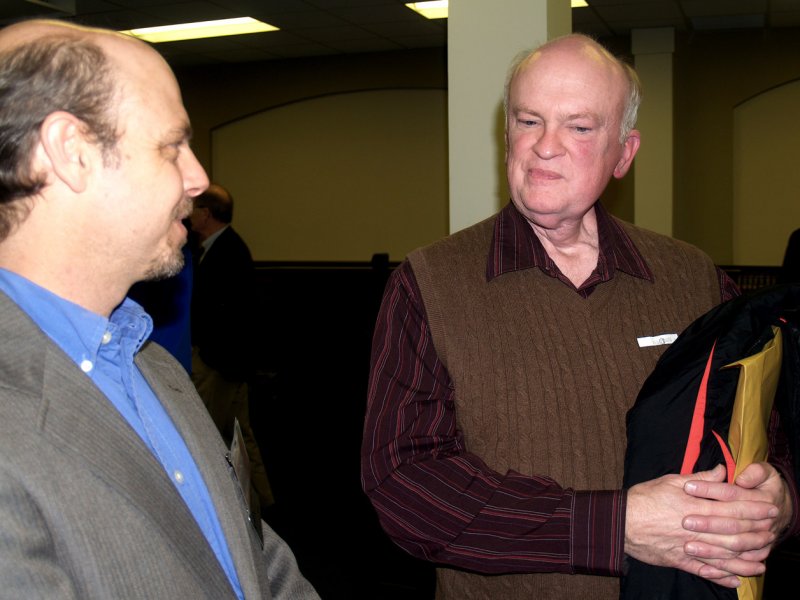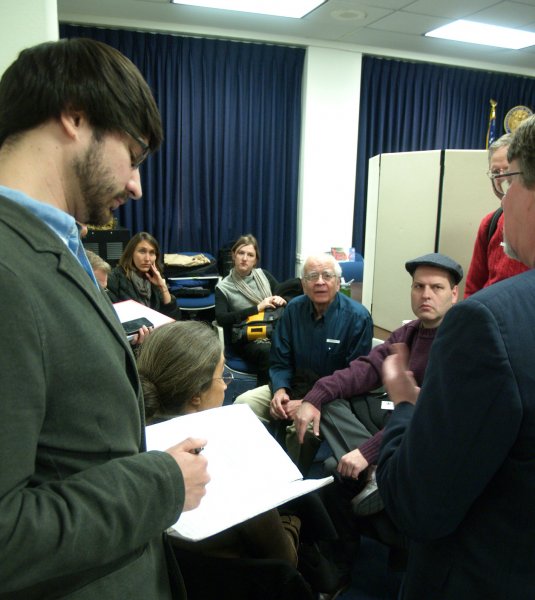Jobs and cost-savings possible from renewables and efficiency, panel told

Compelling testimony about the benefits of clean energy and energy efficiency incentives and programs was delivered to the House Tourism Development and Energy Committee on Thursday morning.
“This [bill] is a recognition that there are alternatives;,” said House Bill 170 sponsor Rep. Mary Lou Marzian. “It’s about jobs , jobs, jobs. We need to start looking at the future and building on what we have in terms of renewables and bio-fuels … [and] making Kentucky residents and Kentucky businesses less vulnerable to rising energy costs.”
Electricity usage can be cut 30% to 50% by cutting waste, testified John M. Smith of General Refrigeration. His company specializes in improving energy use at supermarkets and refrigerated warehouses by reclaiming waste heat and water.
“We’ve done this in several Kentucky area stores … and their electric bill was only $7,500 a month that would normally be in the $12-15,000 a month range,” Smith said.
For the business he works with, these energy savings translate into lower food costs for consumers, Smith said. “So it benefits the entire community.”
However, utilities need a push to get involved in and be more supportive of these efforts. “Power companies haven’t given so much consideration to the technical side of heat reclaim [and] upgrades are expensive. We’d like to see the utilities to provide these monetary incentives.”
House Bill 170 would require utilities to find ways to increase energy efficiency.
John A. Smith of Smith Insulation cited similar benefits for residential energy users. He has been in the business of residential energy improvements for 15 years in eastern and central Kentucky.
”Most homes are less than 30% efficient,” he testified, meaning that there’s great potential for savings. For the homeowners he has helped, savings range from 30% to 70%.
 However, “a lot of home owners can’t afford upgrades,” he said. That’s why programs like How$mart, that allow upfront costs to be repaid through savings on energy bills, are so important.
However, “a lot of home owners can’t afford upgrades,” he said. That’s why programs like How$mart, that allow upfront costs to be repaid through savings on energy bills, are so important.
“With the increased work, it’s allowed me to hire additional employees and buy equipment,” Smith said. “This is helping jobs. This is helping individuals be more comfortable in their homes.”
In addition to requiring utilities to find ways to increase energy efficiency, the Clean Energy Opportunity Act requires them to invest in renewables, with a goal of generating 12.5% of their electricity from these sources within 10 years.
John Cotten, the marketing director at Alternative Energy Kentucky in Danville told the committee of the benefits of supporting this goal. AEK is Kentucky’s only solar panel manufacturer.
His company is growing, but that’s largely from orders coming from out of state. Job growth could be much more robust if Kentucky were to commit to diversifying its energy portfolio, he said. Having renewable goals to get utilities to cooperate would make this happen.
“As we continue to look into the future, we do see there are opportunities to level the cost for consumers by diversifying the portfolio.”
AEK was involved in the installation of several solar energy systems on farms located in the Tennessee Valley Authority service area in southern Kentucky. Those farmers were motivated by the feed-in tariff program offered by TVA. A feed-in tariff provides owners of renewable systems a guaranteed price for the excess energy they produce.
After a typical 7- to 8-year payback period, “the savings for farmers over the long term is an amazing amount of money,” Cotten said.
HB 170 would set up a similar feed-in tariff program for all utilities in Kentucky.
The goal of the legislation is to “foster more of those kinds of partnerships” that the Smiths and Cotten described, said Joshua Bills, a certified energy manager with the Mountain Association for Community Economic Development.
There were several questions and comments from legislators, including Rep. Kim King, who wanted to know what would happen if utilities did not meet the efficiency and renewable goals, and Rep. Tom McKee, who touted the role of agriculture in developing renewable energy sources.
 Bill Bissett of the Kentucky Coal Association testified against the bill. “The serious concern is the tremendous cost that will be imposed on every consumer,” he said. “HB 170 is about redefining Kentucky’s energy production … [and] seeks to supplant coal with energy made possible only through public subsidies.”
Bill Bissett of the Kentucky Coal Association testified against the bill. “The serious concern is the tremendous cost that will be imposed on every consumer,” he said. “HB 170 is about redefining Kentucky’s energy production … [and] seeks to supplant coal with energy made possible only through public subsidies.”
HB 170 does not require any use of public funds.
Bissett also said that HB 170 represents a “political mandate” being pushed by “anti-coal activists.” He added that most of the energy “will come from out-of-state sources" rather than using Kentucky coal.
Not enough time was allowed to discuss the bill in more depth, and no vote was allowed. Committee chair Rep. Keith Hall said, “I like the task force idea” as a way to continue discussion, but no steps were taken to set this up.
Recent News
Kentucky’s past legislative session showed alarming trend toward government secrecy
Churchill Downs takes more than it gives. That's why the Kentucky Derby is a no-go for me
‘We must never forget.’ Kentucky town installs markers for lynching victims.
Featured Posts
Protecting the Earth
TJC Rolling Out The Vote Tour – a KFTC Reflection Essay
KFTC Voter Empowerment Contractor Reflection Essay
Archives
- Home
- |
- Sitemap
- |
- Get Involved
- |
- Privacy Policy
- |
- Press
- |
- About
- |
- Bill Tracker
- |
- Contact
- |
- Links
- |
- RSS


Add new comment